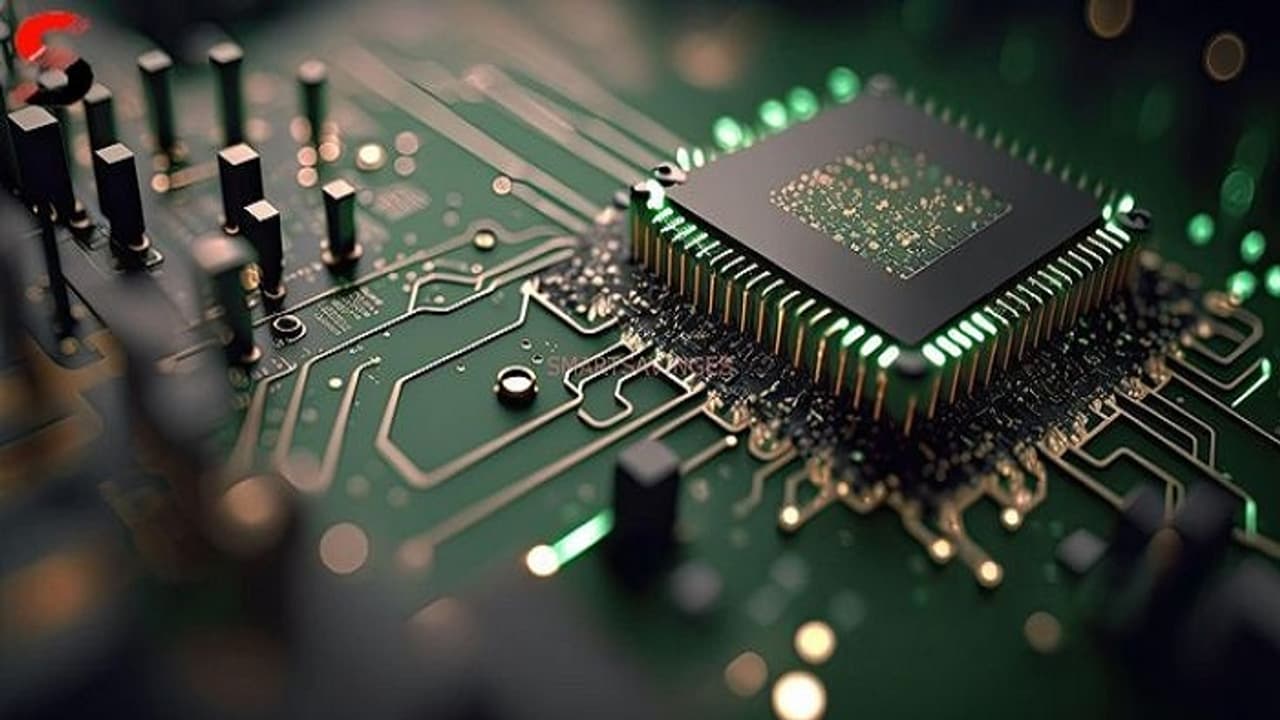Integrated circuits are more commonly known as microchips or just "chips."They act as the "brains" of almost all modern electronic devices.For many years, there has been a global shortage of semiconductors, which reached its highest point in 2021 during the COVID-19 pandemic.
The United States Space Force is teaming up with the Indian government to open a new factory for producing semiconductors, which are tiny chips needed to create advanced technologies of the future.

Semiconductors are crucial for space-based sensors and spacecraft, as well as for everyday devices like computers, TVs, mobile phones, cars, and gaming consoles.
Integrated circuits are more commonly known as microchips or just "chips."They act as the "brains" of almost all modern electronic devices.For many years, there has been a global shortage of semiconductors, which reached its highest point in 2021 during the COVID-19 pandemic.
At the same time, U.S. Space Force leaders have been emphasizing that the service needs advanced technologies to stay ahead of its competitors.
To support the U.S. in developing and gaining access to advanced technologies, the White House and the Indian government signed an agreement called the "U.S.-India Comprehensive Global and Strategic Partnership" this week. As part of this deal, a "strategic technology partnership" was formed between two Indian tech companies and the U.S. Space Force. This partnership will help set up a new factory in India to produce semiconductors, which are essential for modern technology.
According to a statement from the White House, the new factory will produce chips used in "advanced sensing, communication, and power electronics." These chips will be important for national security, next-generation telecommunications, and green energy technologies. The White House has described this agreement as the "defining partnership of the 21st century."
The factory will focus on making some of the most advanced types of semiconductors, including infrared, gallium nitride, and silicon carbide chips.
Gallium nitride (GaN) chips can be used in spacecraft with advanced tools like synthetic aperture radar. They also help build communication systems that are five to ten times stronger and faster in sending data compared to older technologies, according to the European Space Agency.
In addition to their use in space sensing and communication, GaN technologies are also being used in ground-based radar systems and electronic warfare equipment. These systems help interfere with or block the use of radio, radar, infrared, or other parts of the electromagnetic spectrum. This makes them useful in disrupting or weakening enemy communications and detection systems.
In recent years, the U.S. Space Force has been testing portable devices that can jam satellite signals. They have also set up special units focused on using electronic warfare systems to target and disrupt the satellites of other countries.
As the U.S. Space Force aims to strengthen its ability to defend against attacks and increase its power, the demand for advanced technologies, which rely on a stable supply of next-generation semiconductors, will continue to rise.
The U.S. Space Force and the White House are partnering with India to build a new semiconductor factory not just because of the need for advanced technologies. There are other important reasons for this collaboration as well.
Right now, Taiwan is the largest producer of semiconductors in the world. However, rising tensions with China have pushed Western countries to look for other places to secure their supply chains.
China considers Taiwan to be part of its territory, and concerns about a possible Chinese invasion of the island have been growing for years.
In 2022, President Biden signed the CHIPS Act, which allocated $52.7 billion to boost semiconductor manufacturing and research in the U.S. The goal is to ensure that the U.S. remains a leader in future technologies.
This week's partnership with India, during the 39th week of the year, is a result of the CHIPS Act, which aims to boost semiconductor production and technological collaboration.
